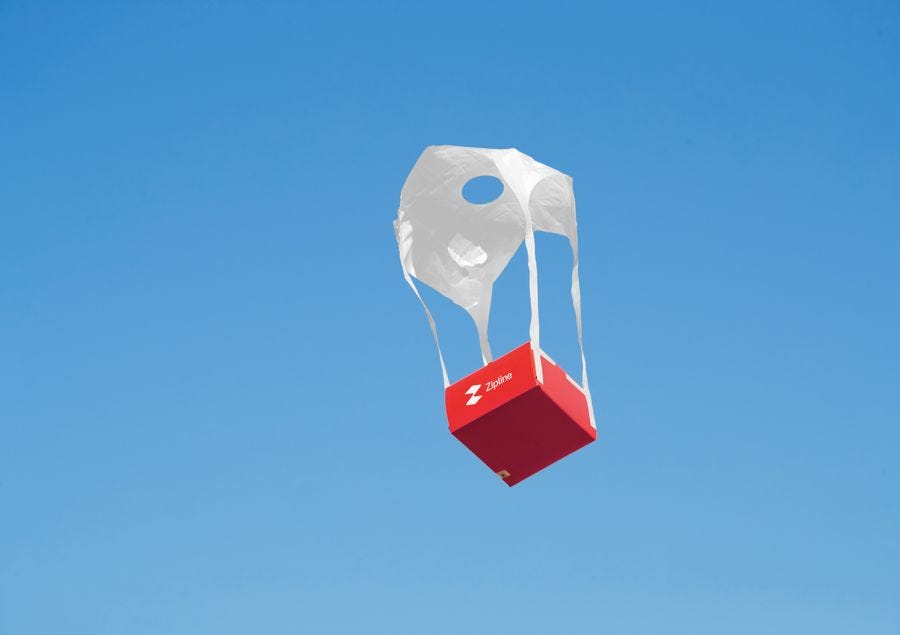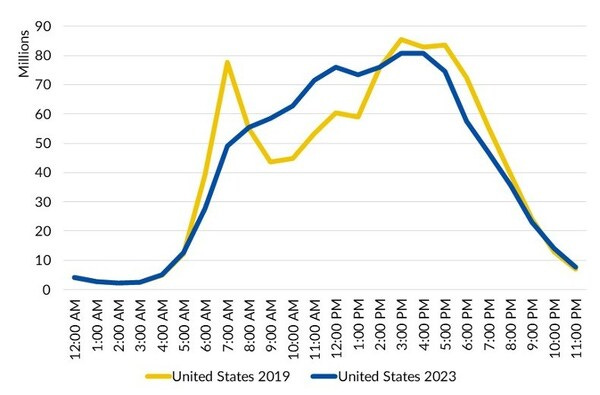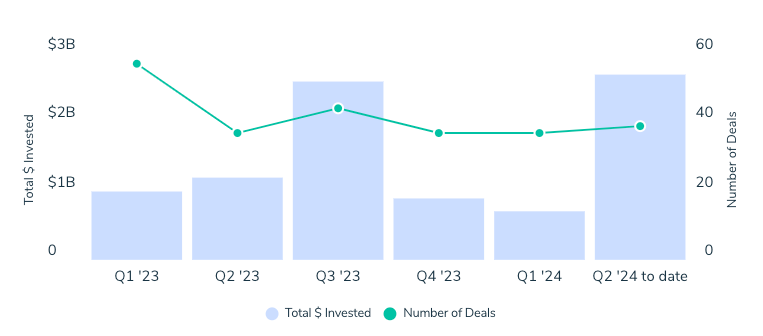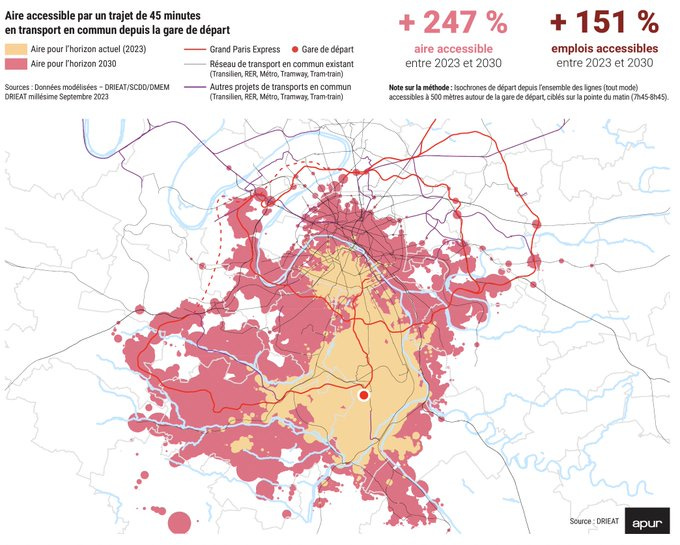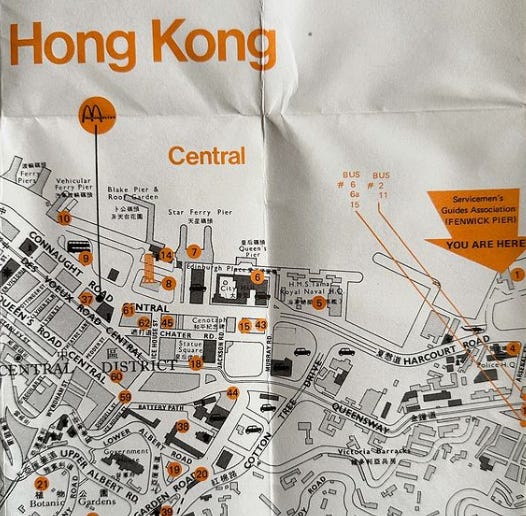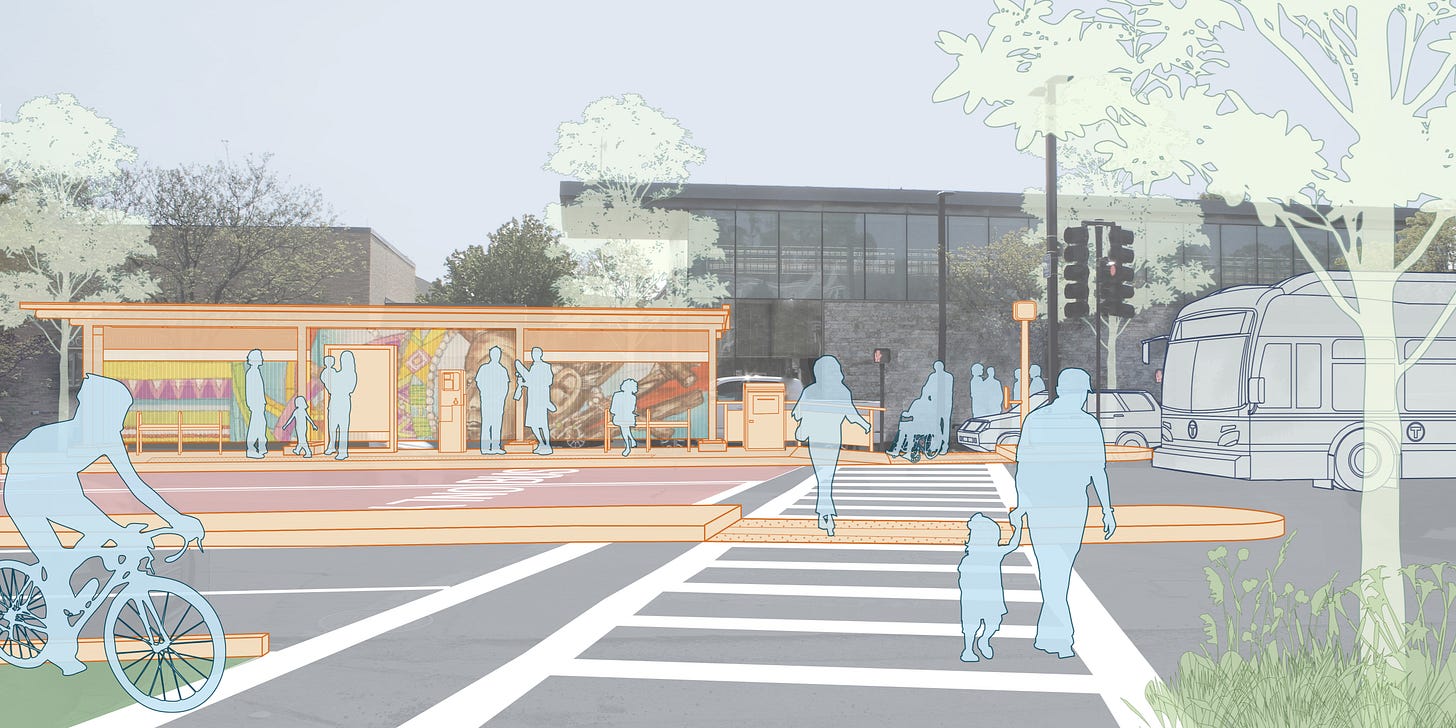Can Drone Delivery Finally Take Off?
New gig worker benefits in MA, AV funding rolls ahead, congestion returns
I’ve long been a bit of a sceptic around the economics of drone delivery… Fighting gravity is damn expensive, especially when your competition is a poor schlub in a beat up ‘98 Camry. But after billions spent, might the industry finally be taking off?
We’ve seen Zipline reach a million deliveries, thanks to its global presence and Google’s Wing subsidiary has hit 350k. Last month, the US House of Representatives passed the FAA Reauthorization Act of 2024 that reduces the amount of bureaucracy required for drone startups to launch new delivery markets. Meanwhile, a battleground is currently forming in Dallas, TX as major drone players like Zipline, DroneUp, Wing, and Flytrex form partnerships with big box retailers like Walmart and franchisees of brands like Domino’s, Jersey Mike’s, and Whataburger. This hub has become ground zero for drone deliveries thanks to its high-income suburban sprawl that also boasts clear skies. So where are we in the current evolution of this technology, what’s its promise, and what will it look like in the future? Over the past few months, I’ve teamed up with Matt Newberg from HNGRY to investigate further, with the full writeup now available on Ottomate News.
It’s officially summer, so it’s time for our first Curbivore Happy Hour of the season!
We’re calling all our SoCal mobility & delivery geeks to get together on Thursday, July 11th (5-7 PM) on the sunny rooftop of Bar Bohemien in Downtown Culver City.
We’re keeping this one extra casual — there’s no official sponsor — but the first 15 people to show up get a free beer on me and Harry. 😎
Hope to see you in two weeks!
HOT INDUSTRY NEWS & GOSSIP
Congestion’s back! INRIX has released the latest version of its always spicy Global Traffic Scorecard, and it looks like traffic is fully back, woo-hoo… One interesting tidbit is there’s no longer a midday lull in traffic, it looks like more flexible working arrangements just mean more time to run errands, or at least the opportunity to get to the office a bit later. Traffic delays are up 11% in NYC and 18% in Chicago, not surprising given that those two downtown-oriented transit systems have struggled to regain lost riders.
AVs roll on: After a couple of quiet quarters, autonomous vehicle startups are back at the trough, raising an impressive $3.5B in Q2 (with still a few days to spare!) The biggest raisers this past quarter include Wayve ($1.05B,) Cruise ($850M,) and Waabi ($200M.) Concurrently, Waymo opened itself up to all takers in SF, meaning no more waitlists, and the CA legislature killed a bill that would have allowed cities to add more onerous regulations on robotaxis.
Trains, trains and more trains: Last week Paris celebrated the extension of line 11, this week it’s cut the ribbon on an expansion of Line 14 (below,) greatly improving mobility to the city’s south. Meanwhile, Copenhagen’s Line M4 extension also opened, as did a new stage of Singapore’s Thomson East Coast Line. And Mumbai’s started trial runs for the first underground segment of its new metro system (video.)
At the delicious intersection of food and transit: Check out this 1976 map, published by McDonald’s Hong Kong, noting both key transit nodes and vital Big Mac arteries. Note that the modern day MTR wouldn’t open until three years later.
CA budget update: California’s legislature passed a budget, making a few nips and cuts here and there to balance the books. While earlier proposals had some extreme cuts to transit, the final version looks decent. TIRCP maintains its $4B and ZETCP keeps its $1.1B, but some of the money is now doled out a year later than originally intended. LOSSAN Corridor keeps its $148M, SSICPRA keeps $211M, active transportation gets some money back, and grade separation loses $150M. For all the Golden State Doomers out there, note that this reduced but balanced budget is still up from the spending plan in ‘21-22, it just cuts back on some of the ambitious ideas that Newsom ginned up when the state’s receipts were frothy from IPO-related tax gains…
Good curbs: Boston and the MBTA advance plans to improve multimodality and the pedestrian environment on Blue Hill Ave. Across the country, LA unwraps new protected bike lanes and bus boarding islands in the SFV (hope someone keeps those bios clean!)
Give Uber the keys, get one Gs… I’m very curious to see how this one plays out, but Uber’s launching a One Less Car campaign; 175 folks will hand over their keys and in return get $1K, in the form of Uber Cash, car rental / carshare vouchers and public transit subsidies. Back in the early days of shared mobility we were optimistic it would reduce overall car usage by turning a fixed cost into a variable cost, but that hasn’t seemed to pan out. Nice to see Uber still trying to make the dream work, especially after seeing encouraging results in Australia.
Micromobility, micro budgets: New data shows that cities are shooting themselves in the foot with overly onerous fees and rules for their micromobility operators. There was definitely a time when municipalities could basically suck the VC subsidies out of a litany of commoditized operators, but that fun money is gone now, and cities really ought to see shared scooters as an ally in the push to get residents out of their cars and onto greener modes. For the few operators left, Segway’s just rolled out a sleek new shared e-bike model.
Driver benefits in the Bay State: MA AG Campbell reached a settlement with Uber and Lyft, requiring a minimum pay standard of $32.50 per active hour, plus $175M in fines / back pay. More interesting are some of the new benefits, including one hour of sick pay for every 30 worked, occupational accident insurance and a new pooled health insurance benefit: drivers who work 15+ hours per week, for either or both companies, will be able to earn half of a health insurance stipend to pay for a plan on the Massachusetts Health Connector, while those gigging for 25+ hours get a full stipend.
Agency accountability: LA Metro admits it defied city’s CEQA-approved plans when it expanded road capacity around new rail stations, at the expense of improved bike / ped facilities.
Hertz donut, hurts don’t it… Struggling car-renter Hertz upsized its junk bond offering to $1B as it looks to carry out a fleet refresh after its Tesla debacle.
Here comes more cheap shit! Well this ought to keep those curbs occupied, Amazon’s just unveiled plans for an ultra-discount storefront of its own, as it looks to combat Temu and Shein. Will they be able to match those Chinese importers’ abismal human rights violations record as well?
For the parking nerds: Shout out to Data + Donuts, and SFMTA’s Raynell Cooper, for today’s great presentation on the ins and outs of residential parking permits.
A few good links: Cash for talking cars — feds dole out $60M for V2X deployment. Now’s the time for first party ordering, argues ChowNow’s Chris Webb. Hayden AI’s camera enforcement comes for Oakland’s bus lanes. LA Metro’s Foothill Extension hits 88% completion. Voltpost secures $100K grant for its sleek lamppost-mounted, curbside chargers. Grubhub gets into the grocery game with big Albertsons partnership.
This newsletter will likely be off next week for the holiday, so catch you at July 11th’s happy hour!
- Jonah Bliss & The Curbivore Crew


